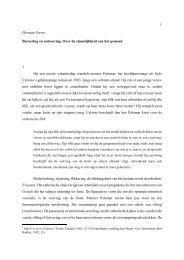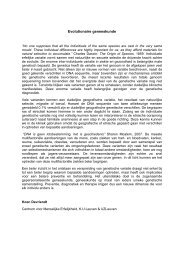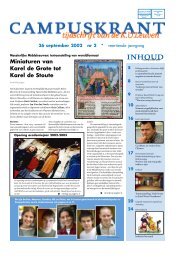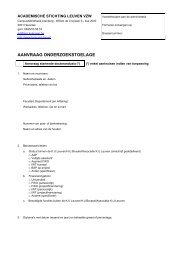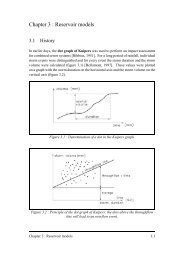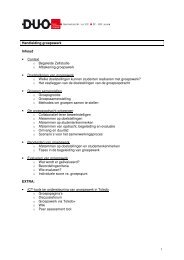EQUALITY GUIdE - KU Leuven
EQUALITY GUIdE - KU Leuven
EQUALITY GUIdE - KU Leuven
Create successful ePaper yourself
Turn your PDF publications into a flip-book with our unique Google optimized e-Paper software.
96 Equality Guide<br />
! The use of a male as well as a female job title makes a text illegible and complex<br />
(e.g. saleswoman/salesman, sales(wo)men, male or female nurse). Moreover, it is<br />
not clear whether the sequence of the male and female job title is important. Additionally,<br />
the use of two expressions is nearly impossible in spoken language.<br />
! Problems also occur with compounds containing masculine terms (e.g. doktersjas<br />
[doctor’s coat] or with compound nouns (e.g. directeur-generaal [director-general])<br />
107 .<br />
! The creation of new derivatives and compounds goes against the tendency towards<br />
a more economical use of language.<br />
! Since the feminine forms are often derivatives of masculine expressions, the feminine<br />
form can be seen as an explicit deviation from the norm.<br />
! The masculine derivative of a female job title may not refer to the same interpretation<br />
of the position. Therefore a new masculine expression will have to be created,<br />
which may become confusing for the language user. In Dutch, the tasks of a<br />
secretaresse [secretary] are not identical to those of a secretaris [clerk], which is at<br />
first sight the masculine derivative of the feminine form.<br />
The lack of consensus is mainly caused by the fact that both neutralization and differentiation<br />
involve the creation of new job titles. Newly created job titles may be laughable,<br />
difficult to pronounce or grammatically incorrect. In these cases, one might find it<br />
hard to convince the language users to use the new terms on a daily basis. A possible<br />
solution may be to refer to the activity rather than to the actual person (e.g. camera<br />
instead of cameraman, direction instead of director).<br />
3.2.2. Legal provisions<br />
Laws in favour of the advancement of feminization of job titles have been passed in<br />
Swiss, Canada, France, Germany, Italy and Austria 108 . In Belgium, several stages of the<br />
recruitment process have also been laid down by law. The law of 4 August 1978 forbids<br />
each form of gender discrimination with regards to the conditions for admission,<br />
the criteria for recruitment and selection and the content of a job, regardless of the<br />
sector or the employee’s statute. The law also forbids “to refer to the sex of the employee<br />
in vacancies and job ads, or to add in those offers and advertisements conditions<br />
that may, even inexplicitly, mention or suggest the sex of the employee. This law<br />
concerns the public and private sector, and has to be applied to employees as well as<br />
to self-employed persons” [own translation of art. 121]. In practice, anyone writing a<br />
job ad has to consider this law and must follow the procedure that excludes each preference<br />
for a male or female employee.<br />
The Belgian law does not mention any specific use of language. Therefore, the question<br />
remains whether the language user can freely choose which job title to use in a<br />
107 De Caluwe (2001), op. cit., p. 75.<br />
108 Verbiest, A. (1997). De oorbellen van de minister: taal en denken over vrouwen. Amsterdam: Contact,<br />
p. 80.



